24 apr 2015
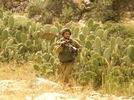
Palestinian medical sources have reported, Friday, that several residents suffered the effects of tear gas inhalation, in Ni’lin village, near the central West Bank city of Ramallah, after the soldiers attacked the weekly nonviolent protest against the Annexation Wall and settlements.
The Popular Committee against the Wall and Settlements in Ni’lin said the soldiers attacked the weekly nonviolent protest as the residents, and international peace activists, marched from the village to the Annexation Wall, isolating the villagers from their lands and orchards.
The soldiers fired dozens of gas bombs, rubber-coated metal bullets and concussion grenades on the protesters, leading to clashes with local youths.
Many residents suffered the effects of tear gas bombs, and received treatment by local medics.
Local sources said the Israeli gas bombs also caused fires that consumed nearly two Dunams planted with wheat, belonging to residents Tha’er ‘Amira and Mohammad Hussein Khawaja.
A Ni’lin Facebook Page reported that clashes took place near a local school, and a public park in the village.
The Popular Committee against the Wall and Settlements in Ni’lin said the soldiers attacked the weekly nonviolent protest as the residents, and international peace activists, marched from the village to the Annexation Wall, isolating the villagers from their lands and orchards.
The soldiers fired dozens of gas bombs, rubber-coated metal bullets and concussion grenades on the protesters, leading to clashes with local youths.
Many residents suffered the effects of tear gas bombs, and received treatment by local medics.
Local sources said the Israeli gas bombs also caused fires that consumed nearly two Dunams planted with wheat, belonging to residents Tha’er ‘Amira and Mohammad Hussein Khawaja.
A Ni’lin Facebook Page reported that clashes took place near a local school, and a public park in the village.
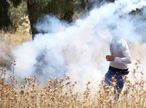
Scores of protesters suffered the effects of tear gas inhalation, while many olive trees caught fire, after Israeli soldiers used excessive force against the weekly nonviolent protest against the Annexation Wall and settlements, in Bil’in village, near the central West Bank city of Ramallah.
The soldiers attacked the nonviolent Palestinian, Israeli and international peace activists as they marched from the center of the village, heading towards the Wall that isolates the villagers from their lands.
The protesters carried Palestinian flags and posters, and chanted against the ongoing Israeli violations targeting the Palestinian people and their lands.
The soldiers fired a barrage of gas bombs setting olive trees ablaze, mainly olive trees, belonging to residents Nasser Abu Rahma and Kayed Khalil Abu Rahma.
The Popular Committee Against the Wall in Bil’in said it is determined to continue the struggle until Israel ends its illegal occupation of Palestine.
In addition, the army kidnapped Mohammad Adib Abu Rahma, 19 years of age, while trying to travel to Saudi Arabia for pilgrimage, for “participating in the weekly protests in Bil’in.” Abu Rahma was previously kidnapped, and imprisoned, twice.
Bil’in is a leading village in ongoing nonviolent Palestinian protest against Israel’s Annexation Wall and its illegal settlements, and is subject to frequent invasions, arrests and attacks by the Israeli army.
The soldiers attacked the nonviolent Palestinian, Israeli and international peace activists as they marched from the center of the village, heading towards the Wall that isolates the villagers from their lands.
The protesters carried Palestinian flags and posters, and chanted against the ongoing Israeli violations targeting the Palestinian people and their lands.
The soldiers fired a barrage of gas bombs setting olive trees ablaze, mainly olive trees, belonging to residents Nasser Abu Rahma and Kayed Khalil Abu Rahma.
The Popular Committee Against the Wall in Bil’in said it is determined to continue the struggle until Israel ends its illegal occupation of Palestine.
In addition, the army kidnapped Mohammad Adib Abu Rahma, 19 years of age, while trying to travel to Saudi Arabia for pilgrimage, for “participating in the weekly protests in Bil’in.” Abu Rahma was previously kidnapped, and imprisoned, twice.
Bil’in is a leading village in ongoing nonviolent Palestinian protest against Israel’s Annexation Wall and its illegal settlements, and is subject to frequent invasions, arrests and attacks by the Israeli army.
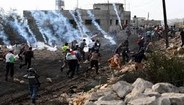
The Israeli Occupation Forces (IOF) on Friday forcibly suppressed peaceful marches in the West Bank.
Live ammunition, rubber bullets and tear gas grenades were heavily fired towards the protesters, one of whom was hit with live bullets and five others were shot with rubber-coated metal bullets.
Dozens of suffocation cases were also reported in the weekly march in Kafr Qaddum to protest the settlement expansion and to demand the opening of the main entrance to the village which has been closed for 13 years in favor of the settlers of "Qaddoumim" settlement which is established on the village's lands.
The injured were taken to the hospital to receive treatment. One of them was seriously injured in the head with a rubber bullet.
Suffocation cases among Bitounia citizens were also reported as a result of firing tear gas grenades by the IOF between the houses during clashes with demonstrators close to Ofer prison.
The IOF also suppressed the Ma'sara weekly march against the Apartheid Wall and the settlement expansion.
Mahmoud Zawahra, the coordinator of the Popular Committee against the Wall and Settlement in the village, said that the march started from the main entrance of the village but the Israeli soldiers prevented the participants from reaching the Wall; he also pointed out that the participants raised Palestinian flags and banners condemning the settlement activity.
Palestinian Loses His Eye Due To Israeli Fire In Kufur Qaddoum
Israeli soldiers used excessive force, on Friday, against the weekly protest against the Wall and Settlements in Kufur Qaddoum, near the northern West Bank city of Qalqilia, causing a serious injury to a young man who lost his eye; one was shot by a live round, and five others were injured by rubber-coated metal bullets, and many suffered the effects of tear gas inhalation.
Medical sources said Rif’at Barham, 23 years of age, lost his right eye after the soldiers fired a rubber-coated metal bullet directly at him.
Resident Daoud ‘Aqel, 17, was shot by a live round to his leg, and five others were shot by rubber-coated metal bullets.
The sources added that dozens of residents received treatment for the effects of tear gas inhalation.
Coordinator of the Popular Committee against the Wall and Settlements in Kufur Qaddoum Morad Shteiwy said Barham was moved to the Rafidia Governmental Hospital, in Nablus, due to the severity of his injury.
He added that resident Nasser Shteiwy, 44, was shot by three rubber-coated metal bullets in his legs, Anas Abdul-Razeq, 20, was shot by a rubber-coated metal bullet in the back, Mohammad Nidal, 19, rubber-coated metal bullet in the shoulder, Mohammad Fathi, 45, rubber-coated metal bullet in the arm, and Mahmoud Nasser, 15, was shot by a rubber-coated metal bullet in the thigh.
On Friday evening, Israeli soldiers invaded a Palestinian orchard in Zabbouba village, west of the northern West Bank city of Jenin, kidnapped Ramah Jamil Atatra, 18, while in his family’s land, and took him to an unknown destination.
Live ammunition, rubber bullets and tear gas grenades were heavily fired towards the protesters, one of whom was hit with live bullets and five others were shot with rubber-coated metal bullets.
Dozens of suffocation cases were also reported in the weekly march in Kafr Qaddum to protest the settlement expansion and to demand the opening of the main entrance to the village which has been closed for 13 years in favor of the settlers of "Qaddoumim" settlement which is established on the village's lands.
The injured were taken to the hospital to receive treatment. One of them was seriously injured in the head with a rubber bullet.
Suffocation cases among Bitounia citizens were also reported as a result of firing tear gas grenades by the IOF between the houses during clashes with demonstrators close to Ofer prison.
The IOF also suppressed the Ma'sara weekly march against the Apartheid Wall and the settlement expansion.
Mahmoud Zawahra, the coordinator of the Popular Committee against the Wall and Settlement in the village, said that the march started from the main entrance of the village but the Israeli soldiers prevented the participants from reaching the Wall; he also pointed out that the participants raised Palestinian flags and banners condemning the settlement activity.
Palestinian Loses His Eye Due To Israeli Fire In Kufur Qaddoum
Israeli soldiers used excessive force, on Friday, against the weekly protest against the Wall and Settlements in Kufur Qaddoum, near the northern West Bank city of Qalqilia, causing a serious injury to a young man who lost his eye; one was shot by a live round, and five others were injured by rubber-coated metal bullets, and many suffered the effects of tear gas inhalation.
Medical sources said Rif’at Barham, 23 years of age, lost his right eye after the soldiers fired a rubber-coated metal bullet directly at him.
Resident Daoud ‘Aqel, 17, was shot by a live round to his leg, and five others were shot by rubber-coated metal bullets.
The sources added that dozens of residents received treatment for the effects of tear gas inhalation.
Coordinator of the Popular Committee against the Wall and Settlements in Kufur Qaddoum Morad Shteiwy said Barham was moved to the Rafidia Governmental Hospital, in Nablus, due to the severity of his injury.
He added that resident Nasser Shteiwy, 44, was shot by three rubber-coated metal bullets in his legs, Anas Abdul-Razeq, 20, was shot by a rubber-coated metal bullet in the back, Mohammad Nidal, 19, rubber-coated metal bullet in the shoulder, Mohammad Fathi, 45, rubber-coated metal bullet in the arm, and Mahmoud Nasser, 15, was shot by a rubber-coated metal bullet in the thigh.
On Friday evening, Israeli soldiers invaded a Palestinian orchard in Zabbouba village, west of the northern West Bank city of Jenin, kidnapped Ramah Jamil Atatra, 18, while in his family’s land, and took him to an unknown destination.
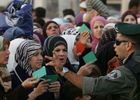
The Israeli Authorities canceled entry permits of the 200 Palestinian, from the besieged Gaza Strip, who were previously allowed to enter Jerusalem for Friday prayers in the Al-Aqsa Mosque.
General Yoav Mordechai, coordinator of the Israeli Government Activities in the occupied territories, said Israel decided to deny access to the 200 worshipers who obtained special permits to head to the Al-Aqsa Mosque.
Mordechai added that the Israeli measure comes in retaliation to the shell that was fired, late on Thursday at night, from Beit Hanoun, in northern Gaza, into an Israeli area across the border.
He stated that the Erez Terminal would also be closed due to what he called “escalation, and dangerous situation close to the border with Gaza.
Israeli military sources said one missile was fired from Gaza into the Merhavim Regional Council in the Negev, causing no casualties.
Following the attack, the Israeli army boarded targets run by the Al-Qassam Brigades, the armed wing of Hamas in Gaza, and fired rounds of live ammunition into the Gaza shore.
The Israeli army said, although Hamas was not responsible for firing the shell, it is to be held responsible for any escalation in the coastal region.
A senior Israeli security source said a Salafist group, not under the control of Hamas, is behind the attack, and that “should Hamas fail to maintain calm; it will end up paying the price.”
General Yoav Mordechai, coordinator of the Israeli Government Activities in the occupied territories, said Israel decided to deny access to the 200 worshipers who obtained special permits to head to the Al-Aqsa Mosque.
Mordechai added that the Israeli measure comes in retaliation to the shell that was fired, late on Thursday at night, from Beit Hanoun, in northern Gaza, into an Israeli area across the border.
He stated that the Erez Terminal would also be closed due to what he called “escalation, and dangerous situation close to the border with Gaza.
Israeli military sources said one missile was fired from Gaza into the Merhavim Regional Council in the Negev, causing no casualties.
Following the attack, the Israeli army boarded targets run by the Al-Qassam Brigades, the armed wing of Hamas in Gaza, and fired rounds of live ammunition into the Gaza shore.
The Israeli army said, although Hamas was not responsible for firing the shell, it is to be held responsible for any escalation in the coastal region.
A senior Israeli security source said a Salafist group, not under the control of Hamas, is behind the attack, and that “should Hamas fail to maintain calm; it will end up paying the price.”

Dozens of students suffered breathing difficulties after inhaling teargas fired heavily on Thursday into their secondary schools in Sawiya town in southern Nablus.
Director of the targeted school Adnan Hussein told the PIC reporter that dozens of girl students suffered breathing problems and fainting after Israeli forces brutally stormed and fired tear gas bombs at the neighboring boy school.
Four girl students suffered a brief fainting spell while a fifth one was transferred to hospital for treatment.
Three Israeli military jeeps surrounded a local secondary school for boys in an attempt to break into it claiming that a number of students stoned Israeli forces Thursday morning.
The director of the school strongly denounced the Israeli attack on the two secondary schools, pointing out that it is the second attack of its kind within a month.
Director of the targeted school Adnan Hussein told the PIC reporter that dozens of girl students suffered breathing problems and fainting after Israeli forces brutally stormed and fired tear gas bombs at the neighboring boy school.
Four girl students suffered a brief fainting spell while a fifth one was transferred to hospital for treatment.
Three Israeli military jeeps surrounded a local secondary school for boys in an attempt to break into it claiming that a number of students stoned Israeli forces Thursday morning.
The director of the school strongly denounced the Israeli attack on the two secondary schools, pointing out that it is the second attack of its kind within a month.
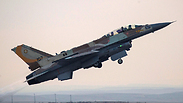
Israeli soldiers fired, on Friday at
dawn, three artillery shells into an area in the northern part of the
Gaza Strip, while navy ships fired dozens of rounds of live ammunition
into the Gaza shore.
Media sources in Gaza said the army fired three shells at “monitoring sites” used by fighters of the Al-Qassam Brigades, the armed wing of Hamas.
They added that several Israeli navy ships fired dozens of rounds of live ammunition into the Gaza shore in the northern part of the coastal region, while military helicopters repeatedly violated Gaza air space.
In a brief press statement, Israeli Army spokesperson Avichai Adraee claimed the army bombarded a site in northern Gaza “in retaliation to a shell that was fired into the Western Negev.”
He added that Israel has decided to prevent Gaza Strip residents from leaving the coastal region heading to Jerusalem for Friday prayers, and also decided to close the Beit Hanoun (Erez) crossing.
Spokesperson of the Palestinian Minister Of Health, Dr. Ashraf al-Qedra, said the Israeli attack did not cause any casualties, and called on the Palestinians to remain alert.
IDF strikes targets in northern Gaza
In retaliation for first rocket attack of 2015, Israeli military attacks Hamas position in Beit Hanoun.
After four months of quiet, a rocket was fired on Thursday evening from Gaza towards communities in southern Israel. The rocket exploded in an open field in the Sha'ar Ha Negev Regional Council. There were no injuries or damages reported.
Close to midnight on Thursday, the IDF tanks attacked a Hamas position in the northern Gaza Strip in retaliation for the rocket that landed in southern Israel a few hours earlier.
The IDF said in a statement that it "will not condone any effort to harm the security of the people of Israel."
Palestinian sources reported that the artillery shelling hit an open area near Beit Hanoun, the site of the rocket which was launched on Israel.
According to an initial IDF investigation, Hamas was not involved in the rocket fire, which was likely initiated by rebellious elements in the Strip. Due to the rocket fire, Israel will not allow passage for Gazan worshippers to the Temple Mount in Jerusalem.
The IDF sources believed that like in previous incidents since the end of Operation Protective Edge in August, the rocket fire was a one-time incident which does not signal an escalation. Hamas has shown restraint in recent months and actively worked to prevent elements within the Strip from approaching the barrier with Israel.
In recent days Hamas has executed a wave of arrests of Salafists in the Strip, following a series of explosions across Gaza. Hamas' security forces have searched relentlessly for those responsible but the identity of the mastermind behind the attacks remains unclear.
According to Salafi sources, 13 of their members were arrested, and it is possible the rocket fire on Israel tonight was intended to embarrass Hamas over the arrests.
Alon Shuster, the head of the regional council, told Ynet: "This is an aberration and its consequences are unclear. There is no panic among the residents, even among those who heard the explosion. This is the reality you deal with when you live in a hotspot which is not handled and occasionally explodes."
Media sources in Gaza said the army fired three shells at “monitoring sites” used by fighters of the Al-Qassam Brigades, the armed wing of Hamas.
They added that several Israeli navy ships fired dozens of rounds of live ammunition into the Gaza shore in the northern part of the coastal region, while military helicopters repeatedly violated Gaza air space.
In a brief press statement, Israeli Army spokesperson Avichai Adraee claimed the army bombarded a site in northern Gaza “in retaliation to a shell that was fired into the Western Negev.”
He added that Israel has decided to prevent Gaza Strip residents from leaving the coastal region heading to Jerusalem for Friday prayers, and also decided to close the Beit Hanoun (Erez) crossing.
Spokesperson of the Palestinian Minister Of Health, Dr. Ashraf al-Qedra, said the Israeli attack did not cause any casualties, and called on the Palestinians to remain alert.
IDF strikes targets in northern Gaza
In retaliation for first rocket attack of 2015, Israeli military attacks Hamas position in Beit Hanoun.
After four months of quiet, a rocket was fired on Thursday evening from Gaza towards communities in southern Israel. The rocket exploded in an open field in the Sha'ar Ha Negev Regional Council. There were no injuries or damages reported.
Close to midnight on Thursday, the IDF tanks attacked a Hamas position in the northern Gaza Strip in retaliation for the rocket that landed in southern Israel a few hours earlier.
The IDF said in a statement that it "will not condone any effort to harm the security of the people of Israel."
Palestinian sources reported that the artillery shelling hit an open area near Beit Hanoun, the site of the rocket which was launched on Israel.
According to an initial IDF investigation, Hamas was not involved in the rocket fire, which was likely initiated by rebellious elements in the Strip. Due to the rocket fire, Israel will not allow passage for Gazan worshippers to the Temple Mount in Jerusalem.
The IDF sources believed that like in previous incidents since the end of Operation Protective Edge in August, the rocket fire was a one-time incident which does not signal an escalation. Hamas has shown restraint in recent months and actively worked to prevent elements within the Strip from approaching the barrier with Israel.
In recent days Hamas has executed a wave of arrests of Salafists in the Strip, following a series of explosions across Gaza. Hamas' security forces have searched relentlessly for those responsible but the identity of the mastermind behind the attacks remains unclear.
According to Salafi sources, 13 of their members were arrested, and it is possible the rocket fire on Israel tonight was intended to embarrass Hamas over the arrests.
Alon Shuster, the head of the regional council, told Ynet: "This is an aberration and its consequences are unclear. There is no panic among the residents, even among those who heard the explosion. This is the reality you deal with when you live in a hotspot which is not handled and occasionally explodes."
23 apr 2015
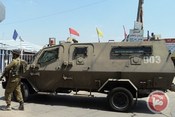
Several Palestinian students suffered tear-gas inhalation as Israeli forces raided a girls' school south of Nablus on Thursday.
Palestinian security sources told Ma'an that several Israeli military vehicles raided the Al-Sawiya girls' school claiming rocks were thrown at settlers' vehicles on the main road of the village from the school.Israeli soldiers fired tear-gas and stun grenades at students.
Sources added that 16-year-old student Fatima Suleiman was taken to the Salfit Governmental Hospital for treatment.
An Israeli army spokeswoman told Ma'an Israeli forces received reports of rocks thrown from the school onto passing vehicles driving on Route 60. Israeli forces arrived at the scene and asked the suspects to stop, later using standard means of crowd dispersal to "stop further violence," she added.
Nablus has come under increasing military presence from both Israeli and Palestinian security forces in recent weeks, Israeli forces targeting Hamas affiliates during arrest raids last week and Palestinian security forces continuing to crack down on crime in a security campaign that began in February.
The Al-Sawiya girls' school has been subject to Israeli raids in the past, undergoing a raid recently in February 2015, according to local media.Several schools in the occupied West Bank and East Jerusalem face constant military presence, while some students are forced to travel to school by foot through military firing zones, violating Palestinian students' right to education, according to rights group EAPPI.No arrests or serious injuries were reported following Thursday's incident.
Palestinian security sources told Ma'an that several Israeli military vehicles raided the Al-Sawiya girls' school claiming rocks were thrown at settlers' vehicles on the main road of the village from the school.Israeli soldiers fired tear-gas and stun grenades at students.
Sources added that 16-year-old student Fatima Suleiman was taken to the Salfit Governmental Hospital for treatment.
An Israeli army spokeswoman told Ma'an Israeli forces received reports of rocks thrown from the school onto passing vehicles driving on Route 60. Israeli forces arrived at the scene and asked the suspects to stop, later using standard means of crowd dispersal to "stop further violence," she added.
Nablus has come under increasing military presence from both Israeli and Palestinian security forces in recent weeks, Israeli forces targeting Hamas affiliates during arrest raids last week and Palestinian security forces continuing to crack down on crime in a security campaign that began in February.
The Al-Sawiya girls' school has been subject to Israeli raids in the past, undergoing a raid recently in February 2015, according to local media.Several schools in the occupied West Bank and East Jerusalem face constant military presence, while some students are forced to travel to school by foot through military firing zones, violating Palestinian students' right to education, according to rights group EAPPI.No arrests or serious injuries were reported following Thursday's incident.
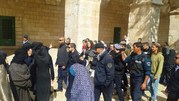
Dozens of Israeli settlers stormed Thursday morning Al-Aqsa Mosque under heavy Israeli police protection marking what they called the "Independence Day".
Around 40 Israeli settlers broke into the Islamic holy shrine in flagrant provocation to Palestinian worshipers who started shouting Takbeer protesting against the settlers' presence in the sacred Islamic shrine, media sources revealed.
A female worshiper was brutally attacked and assaulted by one of the settlers at Silsila gate before the intervention of the Mosque's guards.
Another settler provoked the worshipers by acting in an immoral behavior, challenging the Israeli police's orders to keep away from the Palestinians.
QPress media center has also reported that Israeli forces brutally attacked the worshipers stationed at Silsila gate and arrested two of them without any justification. The detainees were taken to the nearby Yahu police station.
Earlier Monday, a group of Israeli Jewish institutions called for collective break-in into Al-Aqsa Mosque on Thursday in coincidence with their "Independence Day".
Around 40 Israeli settlers broke into the Islamic holy shrine in flagrant provocation to Palestinian worshipers who started shouting Takbeer protesting against the settlers' presence in the sacred Islamic shrine, media sources revealed.
A female worshiper was brutally attacked and assaulted by one of the settlers at Silsila gate before the intervention of the Mosque's guards.
Another settler provoked the worshipers by acting in an immoral behavior, challenging the Israeli police's orders to keep away from the Palestinians.
QPress media center has also reported that Israeli forces brutally attacked the worshipers stationed at Silsila gate and arrested two of them without any justification. The detainees were taken to the nearby Yahu police station.
Earlier Monday, a group of Israeli Jewish institutions called for collective break-in into Al-Aqsa Mosque on Thursday in coincidence with their "Independence Day".

Hundreds of Israeli settlers stormed at dawn Thursday Palestinian-owned land in Burqa town to the north of the West Bank city of Nablus, local activists reported.
Large lands of Burqa town were previously confiscated and turned into Homesh settlement before an Israeli court ordered its evacuation in 2005.
Official of settlement file in northern West Bank Gassen Douglas stated that hundreds of settlers stormed the town heading to the evacuated settlement amid Israeli military protection in an attempt to retake control over it.
A number of Jewish groups have earlier advocated taking control over the area to reestablish the evacuated town, Douglas pointed out.
Douglas stated that the settlers' break-in into the town could be a part of Israeli celebration of the so-called "the Independence Day".
Israeli settlers' attacks against Palestinian people and properties have intensively increased since the Israeli elections, he added.
Clashes broke out in the area between local residents and the invading settlers and forces who violently stormed the lands in total violation of the Israeli court's order.
Large lands of Burqa town were previously confiscated and turned into Homesh settlement before an Israeli court ordered its evacuation in 2005.
Official of settlement file in northern West Bank Gassen Douglas stated that hundreds of settlers stormed the town heading to the evacuated settlement amid Israeli military protection in an attempt to retake control over it.
A number of Jewish groups have earlier advocated taking control over the area to reestablish the evacuated town, Douglas pointed out.
Douglas stated that the settlers' break-in into the town could be a part of Israeli celebration of the so-called "the Independence Day".
Israeli settlers' attacks against Palestinian people and properties have intensively increased since the Israeli elections, he added.
Clashes broke out in the area between local residents and the invading settlers and forces who violently stormed the lands in total violation of the Israeli court's order.
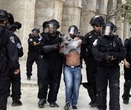
Israeli soldiers attacked dozens of Palestinian worshipers near the Chain Gate, one of the Gates of the Al-Aqsa Mosque, in occupied Jerusalem, and kidnapped two young men. Army invades a village near Nablus, while settlers storm area of the former colony near the city.
Local sources said the police, and undercover officers, assaulted dozens of women and men, punched, kicked and clubbed a number of worshipers, and prevented them from entering the Al-Aqsa Mosque compound.
The sources added that the police denied the Muslim worshipers access to the mosque while groups of Israeli extremists marched in its yards carrying Israeli flags, and chanting against the Arabs and Palestinians.
The Police accompanied the extremists while preventing the Muslim worshipers from entering the mosque compound, and kidnapped two young men identified as Tamer Shala’ta and Taher Sheikh Khalil.
On Thursday at dawn, several army vehicles invaded Beta town, south of the northern West Bank city of Nablus, and fired rounds of live ammunition, concussion grenades and flares.
The Palestinian News & Info Agency (WAFA) said the soldiers invaded various neighborhoods, while more troops were deployed around the village, and conducted military searches.
It added that the invasion took place after the soldiers stormed, and searched, areas close to the Beta and Huwwara Junction.
In related news, dozens of Israeli fanatics invaded the area of the former Homesh colony, northwest of Nablus, and marched in the early dawn hours carrying Israeli flags and chanting anti-Palestinian slogans.
Ghassan Daghlas, a Palestinian official in charge of Israeli Settlements File in the northern part of the West Bank, said the invasion is part of a series of violations against the Palestinians and their land.
He added that the violations are carried out despite a ruling by the Israeli Supreme Court, denying the settlers access to the evicted settlement.
Daghlas added that the settlers conduct frequent attempts to occupy Palestinian lands, and install illegal outposts, near the village, and in the al-Mas’oudiyya area that belongs to Borqa village, northwest of Nablus.
Local sources said the police, and undercover officers, assaulted dozens of women and men, punched, kicked and clubbed a number of worshipers, and prevented them from entering the Al-Aqsa Mosque compound.
The sources added that the police denied the Muslim worshipers access to the mosque while groups of Israeli extremists marched in its yards carrying Israeli flags, and chanting against the Arabs and Palestinians.
The Police accompanied the extremists while preventing the Muslim worshipers from entering the mosque compound, and kidnapped two young men identified as Tamer Shala’ta and Taher Sheikh Khalil.
On Thursday at dawn, several army vehicles invaded Beta town, south of the northern West Bank city of Nablus, and fired rounds of live ammunition, concussion grenades and flares.
The Palestinian News & Info Agency (WAFA) said the soldiers invaded various neighborhoods, while more troops were deployed around the village, and conducted military searches.
It added that the invasion took place after the soldiers stormed, and searched, areas close to the Beta and Huwwara Junction.
In related news, dozens of Israeli fanatics invaded the area of the former Homesh colony, northwest of Nablus, and marched in the early dawn hours carrying Israeli flags and chanting anti-Palestinian slogans.
Ghassan Daghlas, a Palestinian official in charge of Israeli Settlements File in the northern part of the West Bank, said the invasion is part of a series of violations against the Palestinians and their land.
He added that the violations are carried out despite a ruling by the Israeli Supreme Court, denying the settlers access to the evicted settlement.
Daghlas added that the settlers conduct frequent attempts to occupy Palestinian lands, and install illegal outposts, near the village, and in the al-Mas’oudiyya area that belongs to Borqa village, northwest of Nablus.

Isam Abu Mohareb, a Palestinian farmer from Gaza, did not think that the Israeli agricultural aircraft's spray on Tuesday 21/4/2015 would ruin all his hopes of compensating his loss in the Israeli aggression of 2014.
As the farmers finished their night shift, Israeli agricultural aircraft was spraying unknown pesticides over large farming areas to the south and north of Kissufim military site.
Unaware of the gravity of the spray, Abu Mohareb left the farm and came the next morning to find that the watermelon, pepper, yard-long cucumber, squash, and mallow plants had withered and lost colors. He then knew that the aircraft spray had destroyed the crops over 500 meters to the north of Gaza-Israeli borders, with another 700-meter agricultural area destroyed by the pesticides carried by the eastern wind.
The Israeli agricultural aircraft repeatedly sprayed the Gaza agricultural border lands this week, destroying tens of agricultural fields. The Ministry of Agriculture has not estimated the losses yet.
Massive loss
Abu Mohareb said, "We have been in a 30,000-Shekel debt since the last Israeli aggression as the Israeli forces bulldozed a water well, a warehouse of agricultural tools, water networks, and a number of our houses. The Israeli agricultural aircraft destroyed our crops and dashed our hopes. We use the money we earn from our farming to sustain 60 family members."
Workers of the farm witnessed the incident as the Israeli aircraft flew at 10-meter height above the crops and sprayed foul-smelling pesticides.
Marwan Abu Mohareb, Isam's brother, appealed to the Ministry of Agriculture and the concerned officials to protect the border farmers from what he called Israeli "displacement campaigns" that target the Palestinian farmers on the Gaza borders.
Withered buds
Marwan continued, "A friend took me on his motorcycle to Abdullah Abu Mughseib's farm. The land there is low and the Israeli watchtowers and espionage balloons appear clearer."
Abu Mughseib expressed his surprise as he saw the withered almond and grape buds and the destroyed red-colored squash, beans and okra plants.
He added, "The crops are not in 300-meter buffer zone. Israel destroyed a 500-meter wide strip of our lands and the winds carried the pesticides to destroy another area over 700 meters deep. In addition to the destroyed plant buds, we now have to spend more than a month waiting for new buds to grow."
Long-lasting debts
Ahmad Abu Sawaween, a farmer of the destroyed lands, had to increase the irrigation water hoping to recover the destroyed squash and bean plants.
During the last Israeli aggression on Gaza, Israeli forces destroyed Abu Sawaween's house, murdered one of his brothers, and arrested another.
He said that the Israeli pesticides destroyed the squash, okra, and bean crops, as well as many other vegetable seedlings. He added, "We had to harvest the bean plants ahead of time, and we lost a huge amount of the crops over an area of around 20 acres. This is the second time we lose this season. We are going to remain heavily in debt. We are going to feed the crops for the livestock."
Israeli deliberate policy
The agricultural engineer, Ahmed Abd Al-Hadi, Director of the Ministry of Agriculture in Deir Al-Balah governorate, said it was the second time for the Israeli agricultural aircraft to spray chemical pesticides over the Gaza farms.
Abd Al-Hadi went on, "The first time was in January following the Israeli aggression of 2014. It is probably pesticides similar to herbicides. It destroyed crops, vegetables, and trees over 90 acres in Wadi Al-Salqa village alone, in addition to large areas in eastern Al-Qarara town."
Abd Al-Hadi confirmed the Israeli deliberate efforts to destroy the agricultural lands on its borderline with the Gaza Strip. He also asserted that several human rights and humanitarian organizations have recently documented the incident, including the Red Cross, the Danish Institute for Human Rights, and other local and international organizations.
The Palestinian residents on Israel-Gaza borders said that Israel, that used to continuously bulldoze the borders and destroy the crops under security pretexts, has started implementing a new tactic to destroy the crops and evacuate the farmers without military vehicles.
As the farmers finished their night shift, Israeli agricultural aircraft was spraying unknown pesticides over large farming areas to the south and north of Kissufim military site.
Unaware of the gravity of the spray, Abu Mohareb left the farm and came the next morning to find that the watermelon, pepper, yard-long cucumber, squash, and mallow plants had withered and lost colors. He then knew that the aircraft spray had destroyed the crops over 500 meters to the north of Gaza-Israeli borders, with another 700-meter agricultural area destroyed by the pesticides carried by the eastern wind.
The Israeli agricultural aircraft repeatedly sprayed the Gaza agricultural border lands this week, destroying tens of agricultural fields. The Ministry of Agriculture has not estimated the losses yet.
Massive loss
Abu Mohareb said, "We have been in a 30,000-Shekel debt since the last Israeli aggression as the Israeli forces bulldozed a water well, a warehouse of agricultural tools, water networks, and a number of our houses. The Israeli agricultural aircraft destroyed our crops and dashed our hopes. We use the money we earn from our farming to sustain 60 family members."
Workers of the farm witnessed the incident as the Israeli aircraft flew at 10-meter height above the crops and sprayed foul-smelling pesticides.
Marwan Abu Mohareb, Isam's brother, appealed to the Ministry of Agriculture and the concerned officials to protect the border farmers from what he called Israeli "displacement campaigns" that target the Palestinian farmers on the Gaza borders.
Withered buds
Marwan continued, "A friend took me on his motorcycle to Abdullah Abu Mughseib's farm. The land there is low and the Israeli watchtowers and espionage balloons appear clearer."
Abu Mughseib expressed his surprise as he saw the withered almond and grape buds and the destroyed red-colored squash, beans and okra plants.
He added, "The crops are not in 300-meter buffer zone. Israel destroyed a 500-meter wide strip of our lands and the winds carried the pesticides to destroy another area over 700 meters deep. In addition to the destroyed plant buds, we now have to spend more than a month waiting for new buds to grow."
Long-lasting debts
Ahmad Abu Sawaween, a farmer of the destroyed lands, had to increase the irrigation water hoping to recover the destroyed squash and bean plants.
During the last Israeli aggression on Gaza, Israeli forces destroyed Abu Sawaween's house, murdered one of his brothers, and arrested another.
He said that the Israeli pesticides destroyed the squash, okra, and bean crops, as well as many other vegetable seedlings. He added, "We had to harvest the bean plants ahead of time, and we lost a huge amount of the crops over an area of around 20 acres. This is the second time we lose this season. We are going to remain heavily in debt. We are going to feed the crops for the livestock."
Israeli deliberate policy
The agricultural engineer, Ahmed Abd Al-Hadi, Director of the Ministry of Agriculture in Deir Al-Balah governorate, said it was the second time for the Israeli agricultural aircraft to spray chemical pesticides over the Gaza farms.
Abd Al-Hadi went on, "The first time was in January following the Israeli aggression of 2014. It is probably pesticides similar to herbicides. It destroyed crops, vegetables, and trees over 90 acres in Wadi Al-Salqa village alone, in addition to large areas in eastern Al-Qarara town."
Abd Al-Hadi confirmed the Israeli deliberate efforts to destroy the agricultural lands on its borderline with the Gaza Strip. He also asserted that several human rights and humanitarian organizations have recently documented the incident, including the Red Cross, the Danish Institute for Human Rights, and other local and international organizations.
The Palestinian residents on Israel-Gaza borders said that Israel, that used to continuously bulldoze the borders and destroy the crops under security pretexts, has started implementing a new tactic to destroy the crops and evacuate the farmers without military vehicles.

Clashes broke out at noontime on Wednesday between a group of Palestinian protestors and the Israeli occupation forces (IOF) after the latter stormed Berkin town, in the northern West Bank city of Jenin.
Eye-witnesses said the IOF patrols scoured Berkin town and came down heavily on the unarmed Palestinian civilians, who responded by hurling stones and empty bottles at the invading soldiers.
The IOF further targeted the Palestinian civilians with randomly-shot barrages of tear gas grenades and rubber bullets.
A number of young protestors reportedly choked on tear gas in the process.
The IOF pitched a military checkpoint at the main entrance to the town, where Palestinian vehicles and passengers had been provocatively searched and inspected.
Eye-witnesses said the IOF patrols scoured Berkin town and came down heavily on the unarmed Palestinian civilians, who responded by hurling stones and empty bottles at the invading soldiers.
The IOF further targeted the Palestinian civilians with randomly-shot barrages of tear gas grenades and rubber bullets.
A number of young protestors reportedly choked on tear gas in the process.
The IOF pitched a military checkpoint at the main entrance to the town, where Palestinian vehicles and passengers had been provocatively searched and inspected.
22 apr 2015
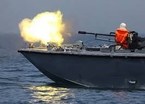
Israeli Navy forces opened machinegun fire at the fishing boats of Palestinian fishermen in Gaza sea on Wednesday.
Palestinian sources said that a number of Israeli gunboats opened heavy machinegun fire at the early morning hours towards the fishing boats of Gazan fishermen who had to abandon their boats. No casualties have been reported.
The attack is another episode in the series of Israeli daily violations of the Cairo-brokered truce accord signed in the wake of last summer’s offensive on the besieged coastal enclave, which killed over 2,300 Palestinians, mostly civilians.
Palestinian sources said that a number of Israeli gunboats opened heavy machinegun fire at the early morning hours towards the fishing boats of Gazan fishermen who had to abandon their boats. No casualties have been reported.
The attack is another episode in the series of Israeli daily violations of the Cairo-brokered truce accord signed in the wake of last summer’s offensive on the besieged coastal enclave, which killed over 2,300 Palestinians, mostly civilians.
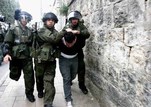
Israeli Occupation Forces (IOF) assaulted on Wednesday three Palestinian students while they were going out of their school in al-Khader town in Bethlehem.
The Coordinator of the National Committee against Settlement in the town Ahmad Salah said that the IOF soldiers beat up three school students in front of their schoolmates. They brutally beat them as soon as they got out of the school’s gates, he added.
Salah pointed out that the school headmaster filed a complaint against the soldiers to the Palestinian military liaison office.
The Coordinator of the National Committee against Settlement in the town Ahmad Salah said that the IOF soldiers beat up three school students in front of their schoolmates. They brutally beat them as soon as they got out of the school’s gates, he added.
Salah pointed out that the school headmaster filed a complaint against the soldiers to the Palestinian military liaison office.
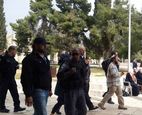
As dozens of Israeli extremists stormed the yards of the Al-Aqsa Mosque, in occupied Jerusalem, chanting and raising Israeli flags, and trying to raise the flags on the mosque, Israeli soldiers kidnapped a young Palestinian man.
Media sources said the soldiers kidnapped Omar Odeh, from Qalansawe, in the Southern Triangle Area.
Odeh was beaten and cuffed, before being moved to an Israeli police station in Jerusalem’s Old City.
The abduction took place after scores of Israeli fanatics stormed the Al-Aqsa Mosque compound, through the al-Magharba gate, on Wednesday morning, and conducted provocative tours under heavy police and army protection.
Several fanatic groups called for massive marches into the mosque compound, Wednesday and Thursday to mark “Israel’s Memorial Day."
Massive Processions are also planned to take place on Thursday starting at 7:30 in the morning, until 6 in the evening, the WAFA Palestinian News Agency said.
Various fanatic groups, and far right-wing politicians, intend to raise Israeli flags not only around the Al-Aqsa mosque but also inside the holy site.
Although the provocative marches have been ongoing for a long while, yet; the main processions are planned for Wednesday and Thursday, with the declared slogan “The Temple Is In Our Hands.”
Media announcements made by a number of fanatic Israeli groups, far-right leaders, states the main event includes “special prayers from the Al-Aqsa, and a mourning of fallen Israelis, in addition to using loud speakers to provide testimonies.”
WAFA said an audio segment would be played on loud speakers documenting the voice of General Rabbi Shlomo Goren, the Chaplin of the Israeli army who, on June 7 1967, sounded the Shofar at the Western Wall, and said, “the Temple Mount is in our hands…” referring to occupying the Al-Aqsa Mosque and East Jerusalem.
Israel started the Memorial Day celebration Wednesday by sounding the two-minute siren at 11 before noon, following with a speech by Israeli Prime Minister Benjamin Netanyahu.
Media sources said the soldiers kidnapped Omar Odeh, from Qalansawe, in the Southern Triangle Area.
Odeh was beaten and cuffed, before being moved to an Israeli police station in Jerusalem’s Old City.
The abduction took place after scores of Israeli fanatics stormed the Al-Aqsa Mosque compound, through the al-Magharba gate, on Wednesday morning, and conducted provocative tours under heavy police and army protection.
Several fanatic groups called for massive marches into the mosque compound, Wednesday and Thursday to mark “Israel’s Memorial Day."
Massive Processions are also planned to take place on Thursday starting at 7:30 in the morning, until 6 in the evening, the WAFA Palestinian News Agency said.
Various fanatic groups, and far right-wing politicians, intend to raise Israeli flags not only around the Al-Aqsa mosque but also inside the holy site.
Although the provocative marches have been ongoing for a long while, yet; the main processions are planned for Wednesday and Thursday, with the declared slogan “The Temple Is In Our Hands.”
Media announcements made by a number of fanatic Israeli groups, far-right leaders, states the main event includes “special prayers from the Al-Aqsa, and a mourning of fallen Israelis, in addition to using loud speakers to provide testimonies.”
WAFA said an audio segment would be played on loud speakers documenting the voice of General Rabbi Shlomo Goren, the Chaplin of the Israeli army who, on June 7 1967, sounded the Shofar at the Western Wall, and said, “the Temple Mount is in our hands…” referring to occupying the Al-Aqsa Mosque and East Jerusalem.
Israel started the Memorial Day celebration Wednesday by sounding the two-minute siren at 11 before noon, following with a speech by Israeli Prime Minister Benjamin Netanyahu.

Violent clashes were reported Tuesday afternoon when Israeli forces brutally broke into Tur town in occupied Jerusalem.
Sound bombs and tear gas canisters were randomly fired during the clashes that erupted while students were leaving their schools which led to a state of panic among the students.
Meanwhile, a Palestinian young man was arrested in Beit Ummar town to the north of al-Khalil.
The 25-old-year Taqi al-Din Jawabra was nabbed Tuesday after being summoned for investigation at Etizon military camp, WAFA news agency quoted the local activist Mohamed Awad as stating.
Jawabra was earlier summoned for investigation after breaking into his home.
Sound bombs and tear gas canisters were randomly fired during the clashes that erupted while students were leaving their schools which led to a state of panic among the students.
Meanwhile, a Palestinian young man was arrested in Beit Ummar town to the north of al-Khalil.
The 25-old-year Taqi al-Din Jawabra was nabbed Tuesday after being summoned for investigation at Etizon military camp, WAFA news agency quoted the local activist Mohamed Awad as stating.
Jawabra was earlier summoned for investigation after breaking into his home.
